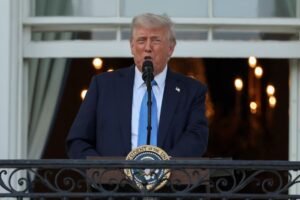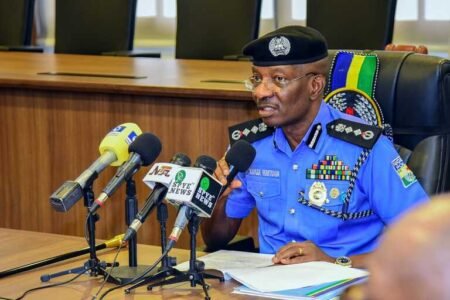President Vladimir Putin won a historic post-Soviet landslide in Russia’s election on Sunday, solidifying his already tight hold on power and demonstrating Moscow’s right to stand up to the West by sending soldiers into Ukraine.
Putin, a former KGB lieutenant colonel who rose to power in 1999, stated unequivocally that the outcome should send a message to the West that its leaders will have to deal with an empowered Russia, whether in war or peace, for many years to come.
The conclusion means Putin, 71, will begin a second six-year term that, if completed, will see him surpass Josef Stalin as Russia’s longest-serving leader in more than 200 years.
According to an exit poll conducted by the Public Opinion Foundation (FOM), Putin received 87.8% of the vote, the most ever recorded in Russia’s post-Soviet history. According to the Russian Public Opinion Research Centre (VCIOM), Putin has an 87% rating.
The first official results confirmed the surveys’ accuracy. The United States, Germany, the United Kingdom, and other countries have stated that the vote was not free or fair since political opponents were imprisoned and censored.
According to preliminary results, Communist candidate Nikolai Kharitonov came in second with little under 4%, followed by newcomer Vladislav Davankov and ultra-nationalist Leonid Slutsky.
Putin assured supporters in a victory address in Moscow that he would prioritise settling duties related to Russia’s “special military operation” in Ukraine as well as strengthening the Russian military.
“We have many tasks ahead. But when we are consolidated—no matter who wants to intimidate us or suppress us—nobody has ever succeeded in history; they have not succeeded now, and they will not succeed ever in the future,” said Putin.
Supporters chanted “Putin, Putin, Putin” when he stepped on stage and “Russia, Russia, Russia” when he finished his acceptance speech.
Inspired by opposition leader Alexei Navalny, who died in an Arctic prison last month, thousands of opponents rallied at polling sites around Russia and abroad at noon to protest against the Russian leader.
He told reporters that he saw Russia’s election as democratic and that the Navalny-inspired protest against him had no bearing on the outcome.
In his first comments on Navalny’s death, he also stated that it was a “sad event” and indicated that he was willing to engage in a prisoner swap involving the opposition figure.
When asked by NBC, a US television network, if his re-election was democratic, Putin lambasted the United States’ political and judicial systems.
“The whole world is laughing at what is happening (in the United States),” he said. “This is just a disaster, not a democracy.”
“Is it democratic to use administrative resources to attack one of the candidates for the presidency of the United States, using the judiciary, among other things?” he asked, making an apparent reference to four criminal cases against Republican candidate Donald Trump.
The Russian election comes just over two years after he ordered the invasion of Ukraine, resulting in the worst European conflict since World War II.
War has loomed over the three-day election: Ukraine has regularly assaulted Russian oil refineries, shelled Russian territories, and attempted to pierce Russian borders with proxy forces, which Putin has warned will not go unpunished.
Putin suggested that Russia may need to establish a buffer zone inside Ukraine to prevent such attacks in the future.
While Putin’s re-election was unquestionable given his authority over Russia and the lack of any credible competitors, the former KGB spy sought to demonstrate that he had the overwhelming support of Russians.
According to election officials, nationwide turnout was 74.22% at 1800 GMT when votes closed, surpassing the 67.5% recorded in 2018.
There was no independent count of how many of Russia’s 114 million voters participated in the opposition marches, which were held under tight security by tens of thousands of police and security agents.










